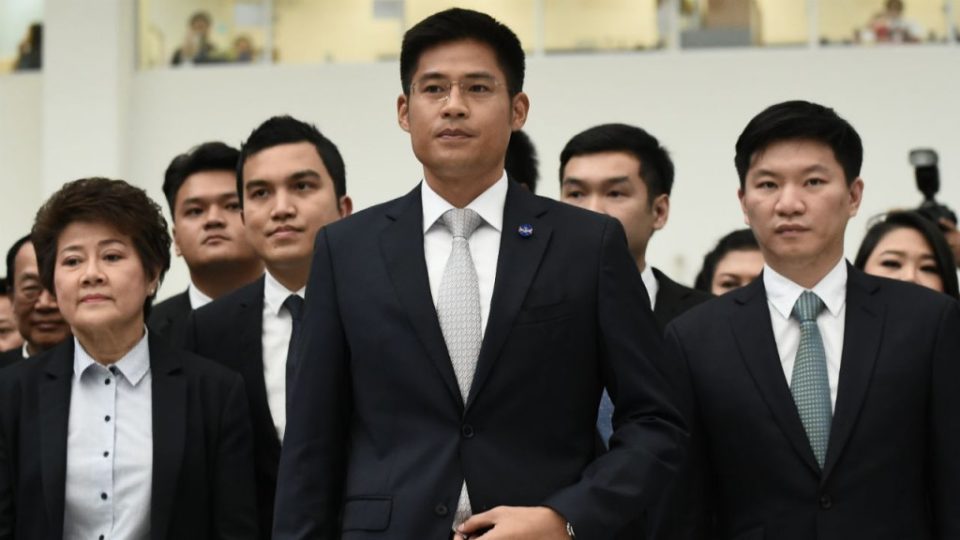Thai Raksa Chart, which is tied to ex-premiers Thaksin and Yingluck Shinawatra, proposed Princess Ubolratana as its prime ministerial candidate if its bloc emerged with a lower house majority after the March 24 election.
It was an unprecedented move in a constitutional monarchy where royals are officially above the political fray, and prompted a rare public rebuke by her younger brother, King Maha Vajiralongkorn, who issued a royal command declaring the party’s move “inappropriate”.
Thai Raksa Chart was found guilty of committing an act “hostile to the constitutional monarchy” by the nine-member Constitutional Court who unanimously voted to dissolve the party.
Party executives — including two Shinawatra family members — were also banned from politics for a decade.
“The monarchy is above politics and to maintain political neutrality, the king, the queen and princesses can never exercise political rights by casting votes,” judge Nakharin Mektrairat said at the end of an extensive ruling.
Dissolution is a hammer blow to the prospects of the powerful Shinawatra clan winning a parliamentary majority in March 24 polls.
Thai Raksa Chart was established to back up the Shinawatra’s main political vehicle Pheu Thai, which won 2011 elections with a landslide.
Its downfall is a major fillip to their army-allied rivals who are fielding current junta leader Prayut Chan-O-Cha as their candidate for premier.
Thai Raksa Chart was set to compete in 174 constituencies with 108 candidates vying for seats through the party list – a system to allocate extra parliamentary seats according to the proportion of votes they scoop up.
Grim-faced party executives, all dressed in black suits and led by party leader Preechapol Pongpanich, filed out of the Constitutional Court through the ranks of media.
The same court has disbanded two other parties linked to the Shinawatra dynasty — and toppled two of its prime ministers — in the last 13 years of political turmoil since Thaksin was booted from office by a coup in 2006.
– ‘Deja vu’ –
The intervening years have seen short-lived civilian governments, bloody street protests and another coup — against Thaksin’s sister Yingluck in 2014 — that brought the current junta to power.
There were tears among the smattering of die-hard supporters gathered near the court.
Thais last voted in a general election in 2011 and have returned Shinawatra-linked parties at every poll since 2001.
But Pheu Thais’ electoral dominance has been cast into doubt by a new system crafted by the junta specifically to limit the number of seats it can win.
The court ruling was “deja vu”, said political analyst Thitinan Pongsudhirak of Chulalongkorn University.
With 18 days to go to the polls, tensions are rising.
The country is deeply divided between those who loathe the military and fear its return to office after elections, and the anti-Thaksin camp.
The princess at the centre of the drama is currently in Berlin promoting tourism to Thailand’s northeast.
“Today, I’d like to continue to work for Thailand,” she said in an Instagram post Wednesday, hashtagged “#Doittogether”.




